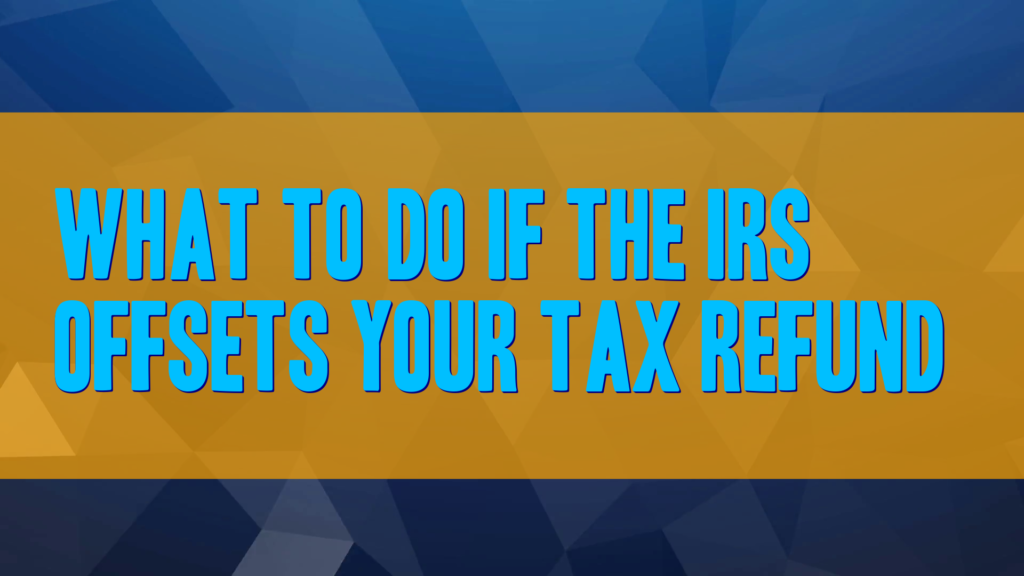
What happens when the IRS Offsets Your Tax Refund? If you get a notice or status of an offset, your tax refund is going to be seized and put towards the debt you owe to the IRS or another government agency. As part of the Treasury Offset Program (TOP), your tax refund checks are matched against any outstanding debts you owe a federal or state government agency. When you have outstanding debt, your refund can be seized up to the amount of debt you owe.
The Financial Management Service, a division of the U.S. Treasury Department, maintains a database of people who are delinquent on debts to the federal government. The service matches your Social Security number against the delinquent debt database; if you are in the database, the department authorizes the seizure of all or part of your refund.
Treasury Offset Program Debts
The TOP can be used to offset your refund when you owe any of the following debts:
- Unpaid child support
- Federal tax debt
- State tax debt
- Federal non-tax debt, such as federal student loans
- Some unemployment compensation debts
Your debt can generally be sent to TOP once it is 90 days past due. Your debt won’t go to the IRS—it goes to the agency you owe.
How To Stop An Offset
You’ll need to work with the agency you owe money to in order to find a different resolution and avoid the refund offset. The IRS isn’t in charge of the TOP, so if you owe money to another agency, the IRS won’t be able to help you.
You may be able to avoid the offset by agreeing to a payment arrangement with the government agency responsible for your debt. You can also appeal the offset if you dispute the debt.
If your tax refund is offset, you could have other federal payments taken and applied to your balance due. Social Security payments, wages for federal employees, and other types of federal payments may also be seized under the Federal Payment Levy Program.
Refund Offset For Injured Spouses
If your refund is being offset on a joint tax return, you may be able to get some of the money back if the debt belongs to your spouse. This typically occurs when a spouse owes money on debt incurred before they were married.
You can claim an injured spouse allocation either when you file your return or after your refund is offset. The injured spouse gets to receive his or her portion of the refund, based on your individual income and other tax items. You can also choose to file a separate return to avoid having your refund offset because of your spouse’s pre-marriage debts.

